Bending with the wind. Created to co-opt urban voters, this minority party’s wartime struggles expose how little space remains for opposition politics in Russia
Manage episode 483186588 series 3381925
In September 2021, the New People party won enough votes to claim seats in the lower house of Russia’s parliament, despite being founded just 18 months earlier. For the first time in 15 years, five parties secured representation in the State Duma instead of the usual four. Created with the Kremlin’s backing, New People was designed to attract the liberal urban electorate. Since Russia invaded Ukraine in February 2022, the party has clung to its image as the home of so-called “common sense” voters. Its lawmakers avoid endorsing the war but also steer clear of opposing it. They campaign against migrants, advocate lifting bans on various social networks, and go to great lengths to transform their initiatives into viral sensations. Meduza special correspondent Andrey Pertsev explains how New People’s liberal image clashes with its consistent support for the Kremlin’s key legislation.
About a month ago, liberal and opposition-leaning Russians began reposting a video featuring a young woman wearing a black kokoshnik (a traditional Russian headdress) criticizing an initiative gaining momentum in several regions of the country to offer financial payments to schoolgirls who choose to carry their pregnancies to term. What struck viewers most wasn’t her unusually strong language for today’s political climate — or even her hat — it was the fact that she is a federal lawmaker. Many regarded Ksenia Goryacheva’s remarks as sensible and highly uncharacteristic of a Duma deputy, where most legislation typically expands prohibitions and promotes “traditional values.”
“You can call these measures ‘bonuses,’ ‘support,’ or ‘care’ all you want. But when state institutions are used to broadcast the message, ‘It doesn’t matter how old you are — have the baby! We’ll pay you for it,’ that’s not care. That’s dangerous propaganda for all of us. Kids having kids is a tragedy,” said Goryacheva, speaking in front of the State Duma’s step-and-repeat banner.
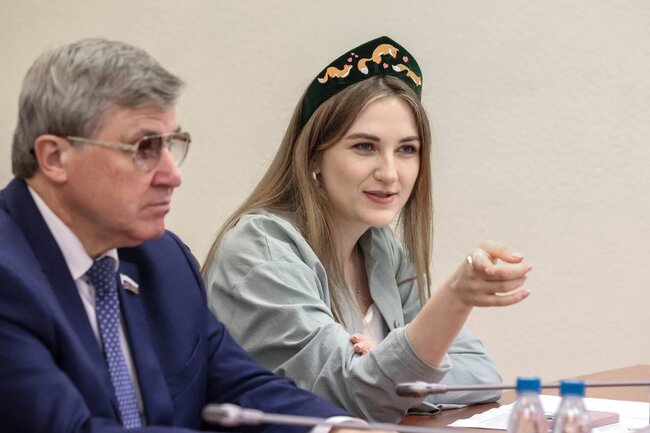
The same Ksenia Goryacheva also spoke out against a bill banning “childfree propaganda,” although she notably didn’t vote against its final draft. During the war, her party has proposed unblocking Instagram and YouTube (which Russia banned in the spring of 2022) and restoring direct mayoral elections. You might even describe New People as a liberal party, were it not for its proposals to restrict entry for migrant workers, impose fees on returning Western companies, ban the wearing of the niqab, and tighten content oversight on films made with government grants.
The paradox at the heart of the party is that the Kremlin’s domestic policy team created New People to engage Russia’s urban electorate. However, the invasion of Ukraine has made it nearly impossible to appeal to liberal voters while adhering to mainstream messaging and avoiding the “red lines” of Russian politics.
A party ‘for all the good things’
The New People party won seats in the State Duma with 5.32 percent of the vote in Russia’s fall 2021 parliamentary election. The party’s platform promised support for businesses, reduced regulations on entrepreneurs, and “freedom of speech and assembly.” However, when Russia invaded Ukraine just a few months later, the joy of reaching the Duma gave way to anxiety about the future.
A source close to the party leadership told Meduza that both New People’s leaders and the Kremlin’s team were “at a loss” when the invasion began. “A significant share of the urban electorate that the party was supposed to reach was opposed [to the war]. Most party members were against it, too. At the same time, they wanted to stay within the system. Going full ‘Z’ [embracing the Kremlin’s pro-war line] would mean losing the bulk of their voters. Speaking out against the war would mean joining the [anti-Kremlin] opposition, which was out of the question for a Kremlin-backed project,” he recalled.
Party members faced what seemed like an impossible balancing act: “They had to avoid supporting the war openly, but also avoid opposing it outright.”
The war’s early days were rough for the party, sources told Meduza. Some New People lawmakers even feared that their first term in parliament would be their last. “There may have been doubts at the highest levels of government about whether this kind of outreach to the urban electorate was even necessary anymore. Priorities had shifted,” one party operative told Meduza.
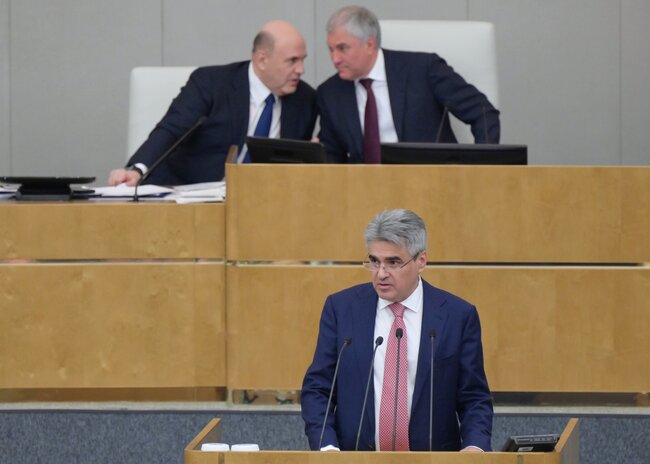
According to a political strategist who previously worked with the party, New People leader Alexey Nechayev and Kremlin political managers had other doubts as well: “It wasn’t really clear what the party was supposed to talk about during the ‘special military operation’ — everything else suddenly seemed unimportant.” In the end, according to this strategist and another consultant who works with the Kremlin, officials decided the party could stick to its original strategy. “For part of the public, just the absence of vocal support for the war already meant something. There was demand for a political force that didn’t insist on bombing everything to the ground,” is how the president’s political team summed it up.
According to another source close to New People’s leadership, it was enough for the party’s deputies to express vague support for the Kremlin’s general agenda and refrain from open criticism. The main task, the source said, was to become “a familiar presence to the president and acclimate him to the idea that there’s another party in the Duma. […] To show that there are level-headed people engaging intellectuals and entrepreneurs and bringing in some ideas for the economy.”
In fact, the Kremlin’s political team has sought to expand the party’s presence in several regional legislatures, in addition to boosting its representation where it already had seats. Two regional officials involved in such coordination said they were strongly encouraged to make sure New People factions appeared in local parliaments, “just like in the Duma.” They were also advised to facilitate seats on city councils in regional capitals. “They didn’t say to rig elections or stuff the ballots blatantly,” one official recalled. “But we were told to offer them maximum support, give them the green light.”
A strategist working with the Kremlin told Meduza that New People receive help mainly in regions where governors are close to operatives working under the president’s first deputy chief of staff, Sergey Kiriyenko. The party also gets support in major population centers, where its target electorate lives. According to a former staffer from New People’s head office, the “organic voter base” in big cities means the party can even win local seats on its own. “They get five percent,” the source explained. “There are people who are unhappy with United Russia and the other establishment parties. And this one’s ‘for all the good things.’ Of course, it’s not about democracy or civil liberties — it’s just about development: business, artificial intelligence, you name it. [But at least] it’s not a bunch of bearded guys waving church banners.”
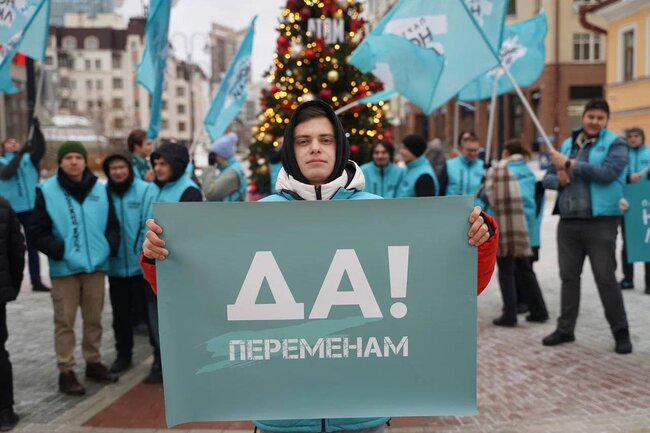
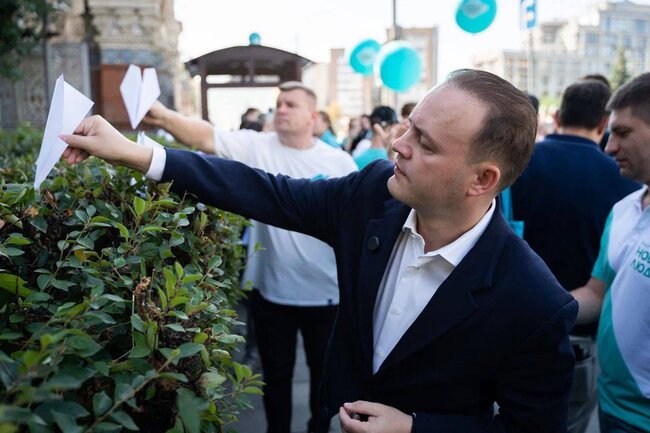
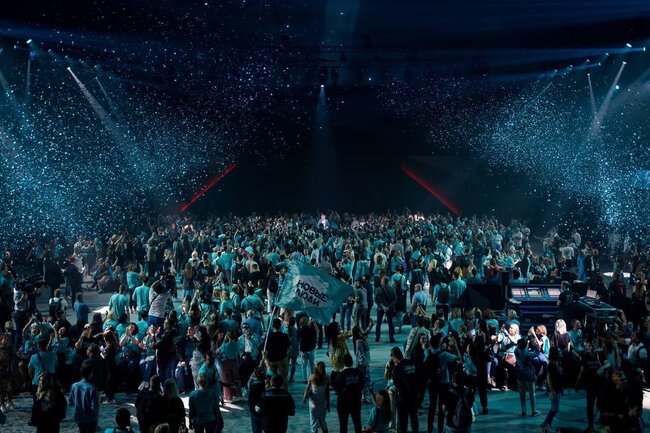
Virality, hype, and xenophobia
A political strategist who recently worked with New People said the party operates by proposing “viral” legislative initiatives designed to generate public discussion. For example, State Duma Deputy Speaker and former presidential candidate Vladislav Davankov advocated for standardizing shawarma preparation nationwide. The party has also suggested allowing children with unusual names to change them before turning 18. Another initiative would have imposed speed limits for electric scooters in cities. (The first two proposals failed to gain the government cabinet’s support, and Duma deputies voted down the third in its first draft.)
The strategist who spoke with Meduza said the party’s deputies must obtain prior approval from New People leader Alexey Nechayev before introducing legislative initiatives, but he doesn’t oversee mere public statements by lawmakers on minor topics. When it comes to more sensitive issues, the party’s leadership coordinates its actions with the Kremlin — likely how Ksenia Goryacheva got clearance to criticize regional officials’ proposal to subsidize teenage pregnancies. “They’re in direct contact with the presidential administration. If told to do something, they’ll do it,” the strategist explained.
For instance, New People supported a municipal reform law that eliminates thousands of local governments across Russia, as well as a proposal to implement universal electronic voting nationwide, both of which were promoted by the Kremlin. “Gradually, there are fewer and fewer liberal initiatives, even though Nechayev keeps insisting that any new legislation should avoid using the word ‘prohibit,’” the strategist added.
One of New People’s main focus areas, two insider sources told Meduza, is the party’s anti-migrant agenda. “They latched onto that a year and a half ago, and the hype just keeps going,” the strategist said.
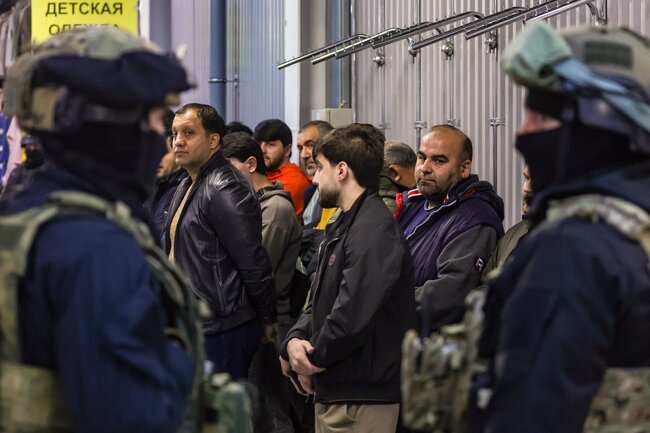
In 2024, New People submitted a draft law to the State Duma that would have allowed migrants to enter Russia only if they already had a signed contract with an employer. (According to official statistics, only 28 percent of migrants cite work as their reason for entering Russia.) That same year, the party also proposed deporting foreign workers with criminal records. In 2025, Alexey Nechayev floated an “electronic migrant ID.” However, none of these proposals made it through parliament, suffering the same fate as the party’s viral bills about shawarma and e-scooters.
A source close to the party’s leadership and another source with ties to the Kremlin’s political team told Meduza that the theme of “combating migration” will feature prominently in New People’s 2026 Duma campaign. “It won’t be as heavy-handed as LDPR’s ‘kick them all out,’ but it’ll stress things like document restrictions and constant monitoring. It’s an issue that resonates with urban voters — resentment toward migrants is stronger in cities,” explained one New People member in Moscow.
The party also collaborates with the nationalist movement “Society.Future,” led by politician Roman Yuneman. According to two sources close to the party’s leadership, Yuneman’s associate Danil Makhnitsky has become one of New People’s political managers. “Back in 2021, the party nominated Makhnitsky in a single-mandate district in Moscow. He works as an organizer and campaign strategist. They can deploy him to regions where the campaign needs a boost,” a New People insider told Meduza. This partnership makes sense, noted another party member in Moscow, and Nechayev is open about his patriotic and pro-state views. Ahead of the 2021 State Duma elections, he even tried to seize control of the nationalist party Rodina.
Beyond New People’s anti-migrant messaging, its agenda includes support for entrepreneurship, unblocking Instagram and YouTube, and opposing “everyday prohibitions.” But the general trajectory remains unclear. “Everything depends on whether the ‘special military operation’ continues,” said Meduza’s source in the party. “Nothing is set in stone.”

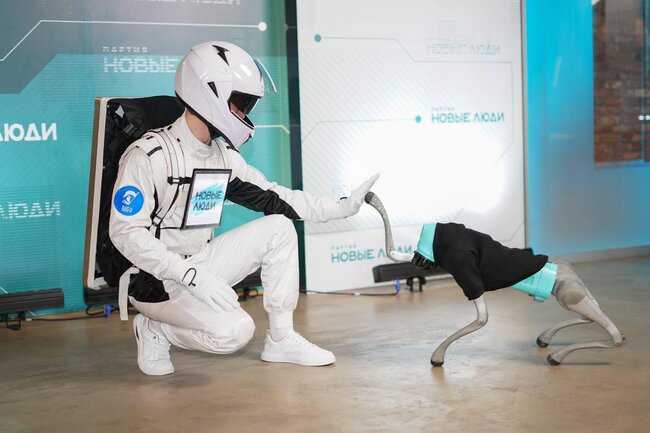
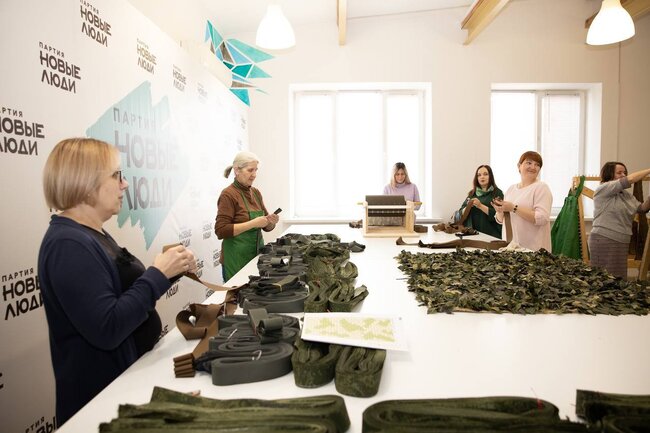
Mass-produced flunkies
Currently, five members of the New People’s 15-deputy Duma faction are graduates from the “Captains of Business” program at the Plekhanov Russian University of Economics, which Nechayev’s company supports with study grants: Georgy Arapov, Alexander Demin, Yaroslav Samylin, Anton Tkachev, and the aforementioned Ksenia Goryacheva. According to a source familiar with Alexey Nechayev and a New People staffer, the party’s leader prefers to surround himself with familiar and predictable protégés who, as they put it, “owe their entire careers and advancement to Alexey and are extremely loyal.” “When they were getting off the ground, the focus was mainly on [early New People recruit and former Yakutsk Mayor] Sardana [Avksentyeva], but now it’s all about the ‘Captains.’ Goryacheva has become one of the main public faces, and they’re featuring her more prominently now,” said one party member in Moscow.
“In fact, the word ‘Captains’ has become shorthand for generic, mass-produced politicians,” explained a strategist who previously worked with the party. “These are the guys who came to Moscow to take Nechayev’s business courses and don’t really understand anything else in life. Very difficult people. Goryacheva is Nechayev’s pride and joy, the best of the Captains. She’s the only one who’s accomplished anything.”
Ksenia Goryacheva was born in Russia’s Tyumen region. She completed the “Captains” program and later became one of its administrators. After being elected to the State Duma, Nechayev appointed her to lead the party’s St. Petersburg chapter, though she had never lived there. “Outsiders run many of the party’s local branches. Goryacheva is among the best of them,” the strategist reiterated.
Goryacheva recently married Danil Makhnitsky, co-founder of the “Society.Future” nationalist movement and a political strategist for New People. According to a Meduza source, she shares his ultrapatriotic views and the couple collaborates on projects like collecting first-aid kits for Russian soldiers fighting in Ukraine. “They don’t hide this stuff, but the party doesn’t draw attention to it, either. It doesn’t quite fit with their public image,” the strategist told Meduza.
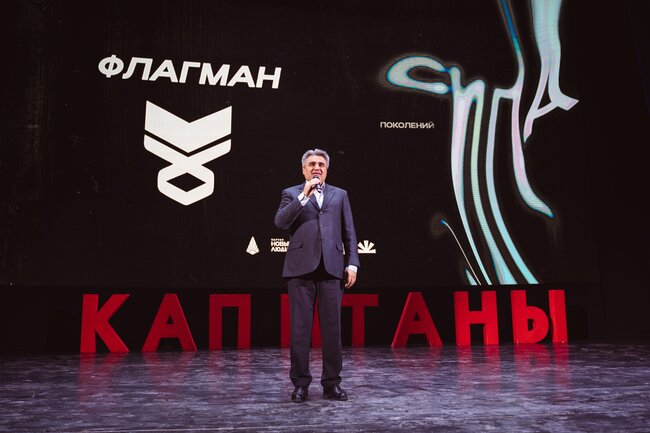
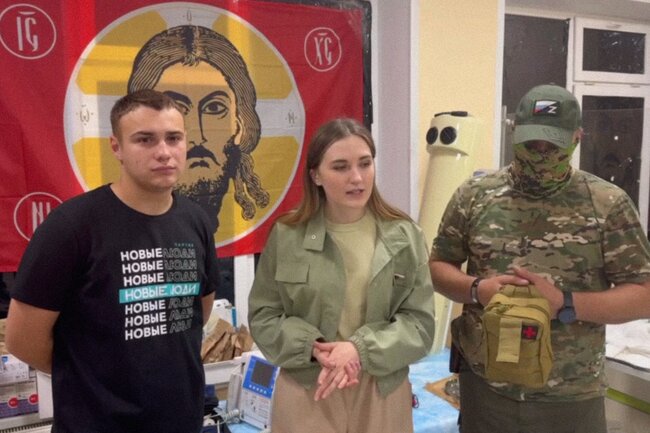
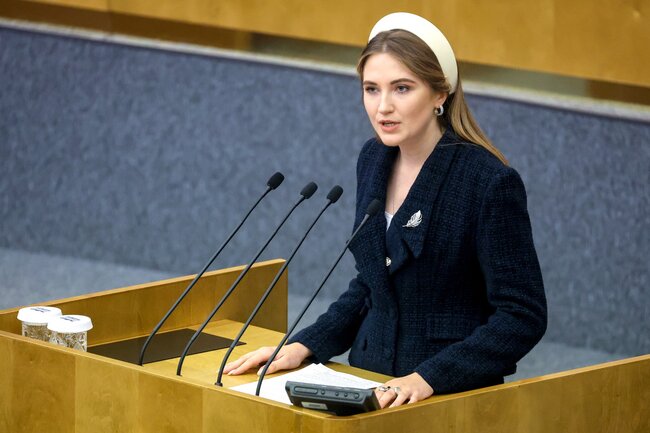
A source close to the Kremlin said the party isn’t particularly interested in developing its regional branches or recruiting high-profile public figures or influential businesspeople. “Nechayev prefers the ‘Captains.’ He’s not trying to build a national power base, at least not right now. Flashy personalities usually end up clashing with governors. Why would the party want that? So, they go with the Captains, who often have no connection to the regions where they’re sent to run branch offices. And it’s those same people serving as the party’s legislators,” said Meduza’s source.
The lack of high-profile politicians with bold ideas is partly offset by the party’s close collaboration with political consultants, according to a Kremlin insider, someone close to Nechayev, and two New People staffers who spoke with Meduza. The party’s leadership coordinates extensively with strategists Ilya Grashchenkov and Ilya Semin. “Grashchenkov went to school with [Duma deputy speaker and New People member] Vladislav Davankov. Semin used to work at [the pro-business public organization] Delovaya Rossiya,” explained a strategist affiliated with the Kremlin’s domestic policy team.
Candidate selection for regional races and the assignment of campaign staff are overseen by the party executive committee’s director, Airat Akhmetzyanov, a political strategist and lawyer who previously worked with United Russia and various regional administrations. He also served as deputy mayor of the Moscow suburb of Dzerzhinsky. A consultant named Vladimir Kleshnya oversees the party’s media positioning. “He’s basically the third most important person in the party — he has Nechayev’s ear,” said a former New People staffer. “He worked his way up through the party, starting out as a basic social media marketing guy. A lot of the viral legislative ideas and public stunts come from him.”

A strategist working on New People’s regional campaigns and collaborating with the Kremlin says the party hopes to improve its showing in the 2026 Duma elections and even aspires to become Russia’s “second-choice party,” though the Kremlin currently reserves that role for LDPR.
A source with ties to the Kremlin described New People as “a dead-end project that already ran its course in 2022,” but the same person said the party will almost certainly keep its Duma seats. “They do have some real support, but the party is far short of the goals it set after making it into the Duma,” the source admitted.
“Basically, the party was supposed to work with ‘establishment liberals,’” concluded a political strategist who once advised New People. “But in practice, they just bend with the wind.”
Story by Andrey Pertsev
Translation by Kevin Rothrock
65 episodes




